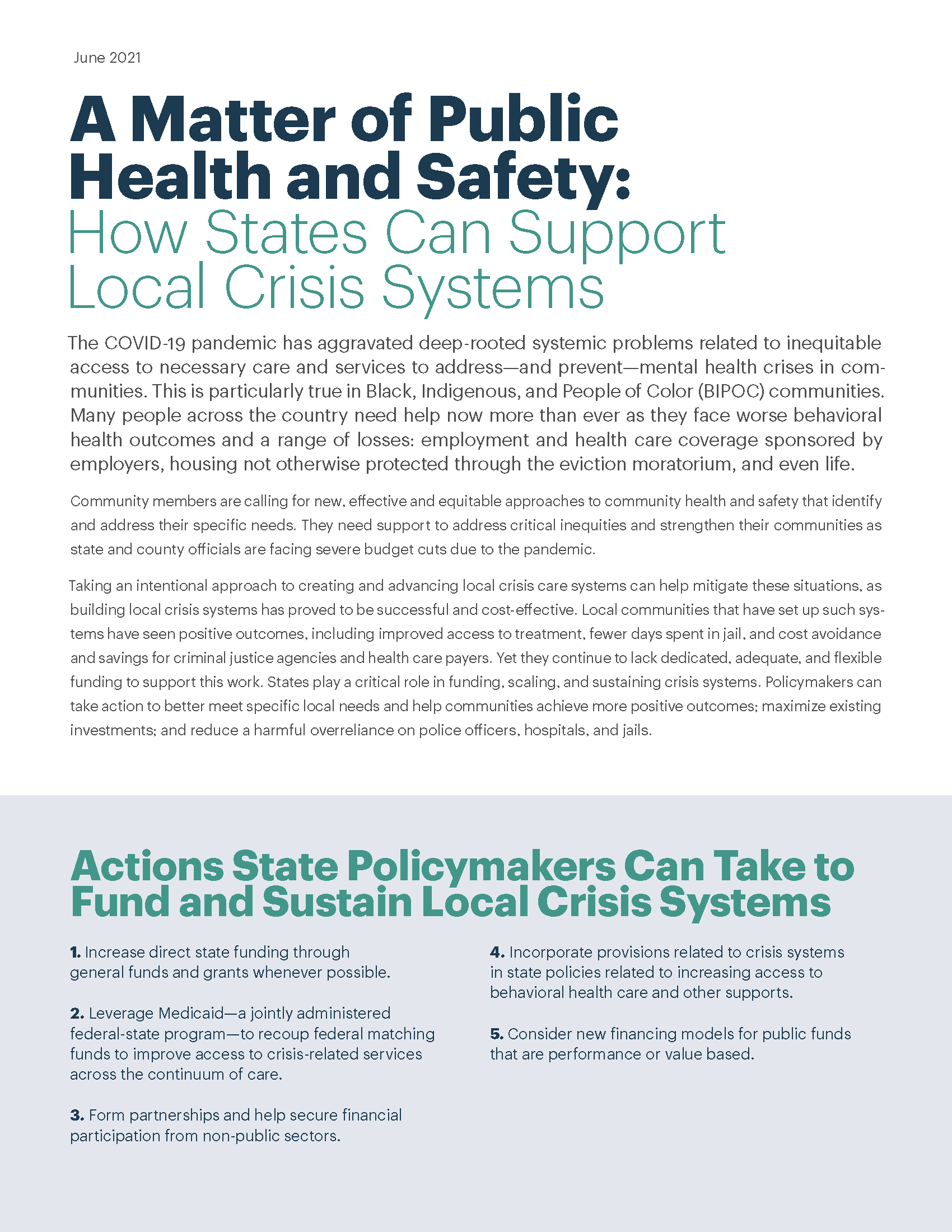A Matter of Public Health and Safety: How States Can Support Local Crisis Systems
A Matter of Public Health and Safety: How States Can Support Local Crisis Systems
The COVID-19 pandemic has aggravated deep-rooted systemic problems related to inequitable access to necessary care and services to address—and prevent—mental health crises in communities. Taking an intentional approach to creating and advancing local crisis care systems can help mitigate these situations, as building local crisis systems has proved to be successful and cost-effective. This brief details five actions state policymakers can take to fund and sustain local crisis systems and provides case examples of how local crisis systems in two jurisdictions have achieved cost savings and positive outcomes. (Photo credit: Sean Pavone via Shutterstock)
Project Credits
Writing: Alex Blandford and Stephanie Shaw, CSG Justice Center
Research: Jessica Gonzales-Bricker, CSG Justice Center
Advising: Ayesha Delany-Brumsey, CSG Justice Center
Editing: Leslie Griffin and Emily Morgan, CSG Justice Center
Design: Michael Bierman
Public Affairs: Ruvi Lopez, CSG Justice Center
Key Informants: Jessica Smarro, Bexar County, Department of Behavioral Health, Behavioral Health Manager; Patrick Steck, Interim Assistant Director, Department of Human Services, San Antonio; Gilbert Gonzales, Director, Department of Behavioral Health, Bexar County; Mike Lozito, Director, Office of Criminal Justice Policy, Planning and Programs, Bexar County; Kathryn Griffin, Justice Reinvestment Coordinator, Office of Arkansas Governor Asa Hutchinson; Jeff Vanderploeg, President and Chief Executive Officer of both the Child Health and Development Institute of Connecticut and its parent organization the Children’s Fund of Connecticut; Grace Guerrero, Senior Clinical Psychologist, Forensic Jail Diversion/TOW/PATH Team Supervisor, Crisis Intervention Center, Arlington, VA; Suzanne Somerville, Behavioral Health Division, Bureau Chief, Residential and Specialized Clinical Services Bureau, Arlington, VA; Amber Widgery, National Conference of State Legislatures, Program Principal, Criminal Justice Program; Melissa Bailey, Director of Behavioral Health and Child Health Transformation, Center for Health Care Strategies, Inc.; Mark Larson, Senior Vice President, Leadership and Capacity Building, Center for Health Care Strategies; Joan Gillece, National Association of State Mental Health Program Directors, Director, Center for Innovation in Behavioral Health Policy and Practice













